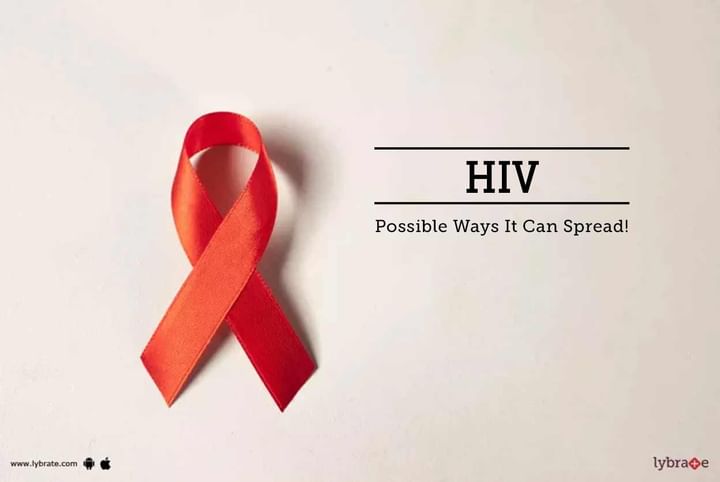HIV - Possible Ways It Can Spread!
Anybody can get infected with human immunodeficiency virus (HIV) irrespective of his or her age, sex, race, and religion. The infected person can transmit the infection even when the signs and symptoms are not evident. So, let’s see the possible reasons for which one can get infected.
First, let us know which fluids in the body can contain HIV (when the person is infected):
- Blood
- Vaginal fluids
- Menstrual blood
- Semen
- Preseminal fluid
- Breast milk
- Lining inside the anus, vagina, and genitalia (mucous membranes)
Other body fluids which don’t contain HIV are:
- Saliva
- Sweat
- Urine
- Stool
- Tears
The ways for transmission of HIV infection are:
Sexual transmission:
- When homosexual men have unprotected anal intercourse.
- When heterosexual men and women have unprotected vaginal, anal, or oral sex.
- Sharing sexual toys and objects with an infected person.
- Having another sexually transmitted infection which produces open sores or cuts on the genitals through which HIV can enter in the body.
- When the person providing oral sex has mouth ulcers, sores, or bleeding gums.
- Lack of circumcision in men as studies have demonstrated that lack of circumcision increases the risk of HIV infection.
- Using drugs to enhance sex, as this can lead to sex with multiple partners, unprotected sex, or using same needles or syringes for drug administration.
In order of higher to lower possibility of transmission: When homosexual men have unprotected anal intercourse. When heterosexual men and women have unprotected vaginal, anal, or oral sex. Sharing sexual toys and objects with an infected person. Having another sexually transmitted infection which produces open sores or cuts on the genitals through which HIV can enter in the body. When the person providing oral sex has mouth ulcers, sores, or bleeding gums. Lack of circumcision in men as studies have demonstrated that circumcised men have relatively lower chances to get HIV infection. Using drugs to enhance sex, as this can lead to sex with multiple partners, unprotected sex, or using same needles or syringes for drug administration and traumatic sex.
Perinatal transmission:
Infected mothers can pass the virus to their babies during pregnancy, delivery, or through breastfeeding. This transmission can be prevented if the mother takes a proper treatment during pregnancy.
Blood transmission:
- Contact of blood with infected body fluids like blood, semen, and vaginal fluid.
- Using intravenous drugs where people often share needles and syringes.
- Through blood transfusion (this is rare nowadays because blood samples are checked before blood transfusion)
- Healthcare workers who accidentally prick themselves with an infected needle or are exposed to blood or organs of an infected person
- By using nonsterile instruments (during surgical operation) which may have been used for an HIV-positive patient. Currently, even this scenario is also very rare because precautionary measures are taken care of during surgeries.
- Due to organ and tissue transplant of an infected person
- By getting tattoos or body piercing done with shared needles or improperly sterilized devices
- By sharing blades and razors with an infected person
HIV does not transmit through:
- Skin-to-skin contact like hugging, shaking hands, or kissing
- Contact with air or water
- Contact with saliva, tears, or sweat (unless mixed with the blood of an infected person)
- Sharing a toilet, towels, or bedding
- By mosquitoes or other insects
- Mouth-to-mouth resuscitation
In case you have a concern or query you can always consult an expert & get answers to your questions!



+1.svg)
